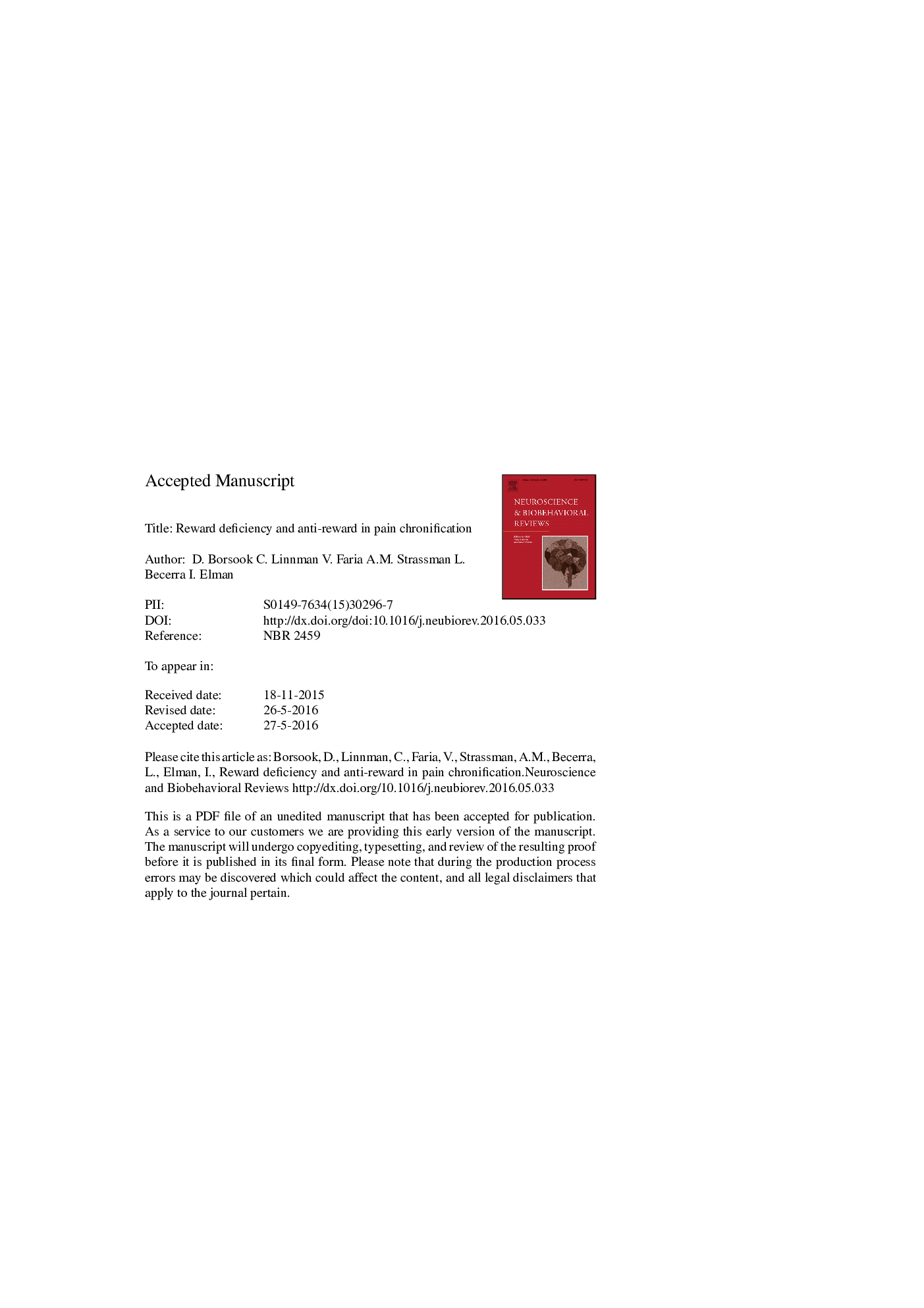| کد مقاله | کد نشریه | سال انتشار | مقاله انگلیسی | نسخه تمام متن |
|---|---|---|---|---|
| 7302817 | 1475302 | 2016 | 41 صفحه PDF | دانلود رایگان |
عنوان انگلیسی مقاله ISI
Reward deficiency and anti-reward in pain chronification
ترجمه فارسی عنوان
کمبود پاداش و پاداش در کاهش درد
دانلود مقاله + سفارش ترجمه
دانلود مقاله ISI انگلیسی
رایگان برای ایرانیان
کلمات کلیدی
موضوعات مرتبط
علوم زیستی و بیوفناوری
علم عصب شناسی
علوم اعصاب رفتاری
چکیده انگلیسی
Converging lines of evidence suggest that the pathophysiology of pain is mediated to a substantial degree via allostatic neuroadaptations in reward- and stress-related brain circuits. Thus, reward deficiency (RD) represents a within-system neuroadaptation to pain-induced protracted activation of the reward circuits that leads to depletion-like hypodopaminergia, clinically manifested anhedonia, and diminished motivation for natural reinforcers. Anti-reward (AR) conversely pertains to a between-systems neuroadaptation involving over-recruitment of key limbic structures (e.g., the central and basolateral amygdala nuclei, the bed nucleus of the stria terminalis, the lateral tegmental noradrenergic nuclei of the brain stem, the hippocampus and the habenula) responsible for massive outpouring of stressogenic neurochemicals (e.g., norepinephrine, corticotropin releasing factor, vasopressin, hypocretin, and substance P) giving rise to such negative affective states as anxiety, fear and depression. We propose here the Combined Reward deficiency and Anti-reward Model (CReAM), in which biopsychosocial variables modulating brain reward, motivation and stress functions can interact in a 'downward spiral' fashion to exacerbate the intensity, chronicity and comorbidities of chronic pain syndromes (i.e., pain chronification).
ناشر
Database: Elsevier - ScienceDirect (ساینس دایرکت)
Journal: Neuroscience & Biobehavioral Reviews - Volume 68, September 2016, Pages 282-297
Journal: Neuroscience & Biobehavioral Reviews - Volume 68, September 2016, Pages 282-297
نویسندگان
D. Borsook, C. Linnman, V. Faria, A.M. Strassman, L. Becerra, I. Elman,
